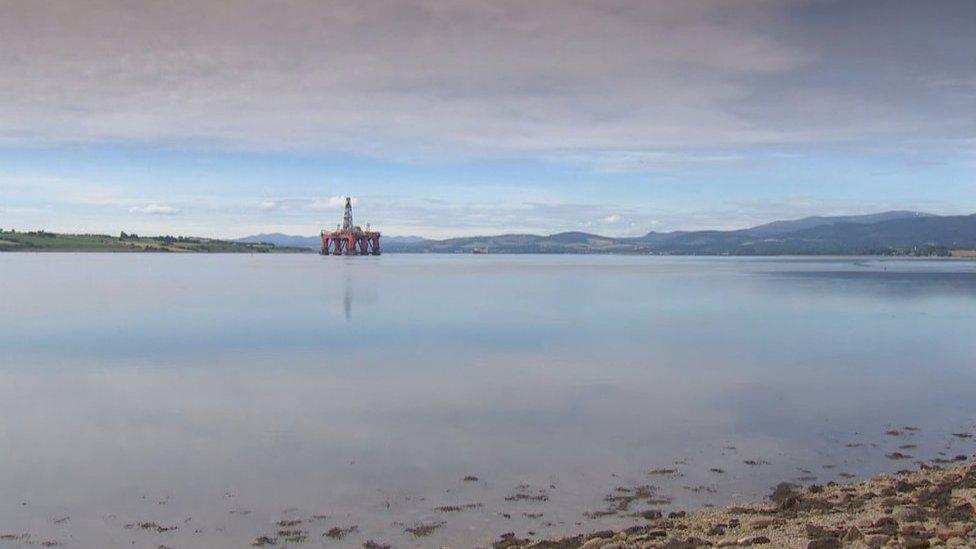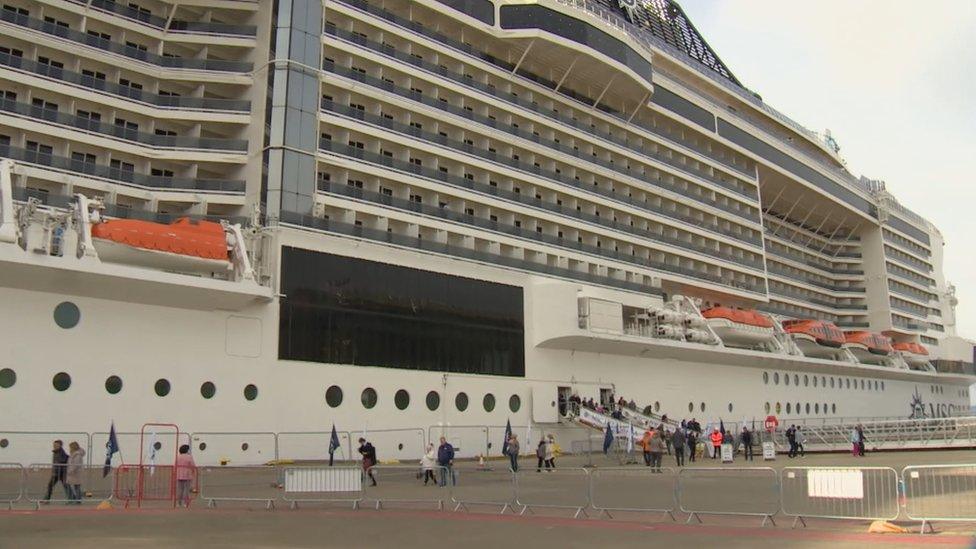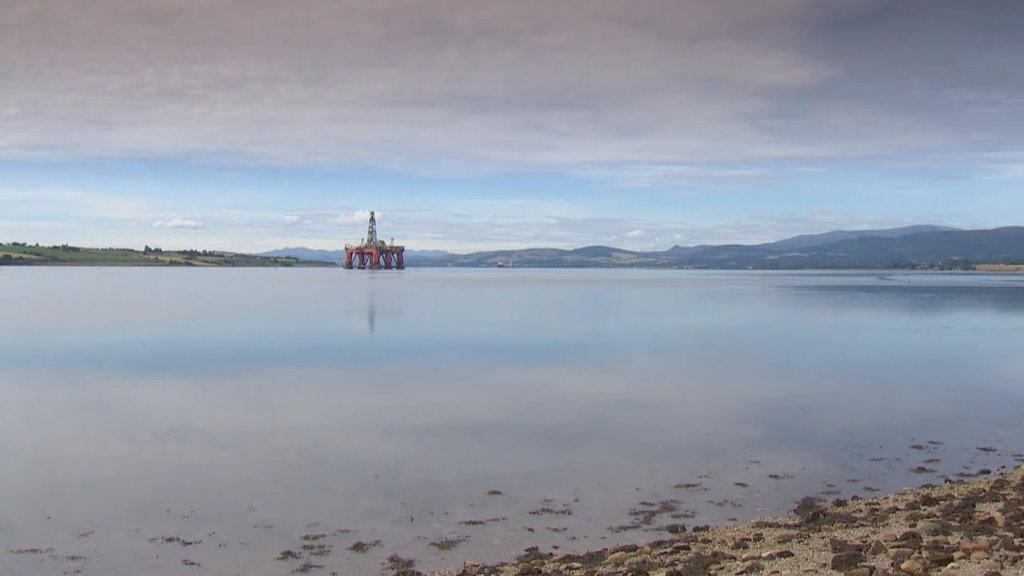Plan to make Highland firth a free trade zone
- Published

The Cromarty Firth is on the Highlands' east coast
A free trade zone could be created in the Highlands' Cromarty Firth under a newly-unveiled plan.
The UK government has proposed creating up to 10 zones, also known as free ports, as part of its post-Brexit plans.
Normal tax and customs rules do not apply in the zones.
A partnership of Highlands businesses and organisations said the status would help to create new jobs around the Cromarty Firth.
Opportunity Cromarty Firth hopes to secure government support for its free port plan.
Its members include Port of Cromarty Firth, engineering company Global Energy Group, Highland Council, Highlands and Islands Enterprise and the University of the Highlands and Islands.
They believe the free trade zone status would protect and create jobs for the next 50 years.
But critics of free ports argue that the advantages of the status were not clear, and they may take jobs from other areas rather than create new ones.
At a free port, imports can come in with simplified customs documentation and without paying tariffs.
Firms operating within designated areas in and around the port can make goods using the imports, before exporting them without having to comply with full tariffs or procedures.
'Suffered with Covid'
The firth, a sheltered area of sea on the Highlands' east coast, is a base for engineering firms and its waters are used for "parking" oil and gas industry rigs and other installations while not in use or when they are requiring refurbishment.
Before the coronavirus pandemic, the firth also had a growing cruise ship business.

The firth's cruise ship season was wiped out by the coronavirus pandemic
Bob Buskie, chief executive of the Port of Cromarty Firth, said: "Cromarty Firth is steeped in industrial history, having supported North Sea oil and gas activity since the 1970s, and is now playing a critical role in the Scottish offshore wind sector.
"The firth hosts a number of leading supply chain companies as well as a locally skilled workforce with essential engineering experience.
"This is coupled with first-class port infrastructure and manufacturing facilities, which have benefited from over £110m of industry-led investments in the past 10 years."
Roy MacGregor, chairman of Global Energy Group, said a free trade zone would help the Highlands recover from the virus pandemic.
His company and others around the firth at sites in Nigg and Invergordon have been working on renewable energy projects.
Mr MacGregor told BBC Scotland: "At a time when we've suffered with Covid and at a time when are trying to get clean fuel this would give us an injection of confidence to move ahead and create jobs and investment."
'Deeply sceptical'
Alasdair Christie, Highland Council's depute leader, said there was "significant potential" in the free port plan for the Highland region and its economic recovery.
Opportunity Cromarty Firth is to hold an online launch event later on Thursday to explain the plan in full ahead of potentially making a bid for the designation later in the year.
John Tomaney, professor of urban and regional planning at University College London, said he was "deeply sceptical" of the UK government's free ports plan.
He told BBC Radio's Good Morning Scotland programme: "For a number of reasons we have had free ports in the European Union and in the UK in the past and they haven't really transformed economic development in the places where they have been introduced."
Prof Tomaney said there were "good examples" of free ports along the US-Mexican border, but added: "There is very convincing research in my view from the World Bank which suggests the jobs they create are often low quality, low paid, poorly protected in legal terms and often quite unstable."
He said where free ports had previously been created in the UK they had not "added to overall total of jobs, but had facilitated the moving of jobs around".
- Published27 July 2020
